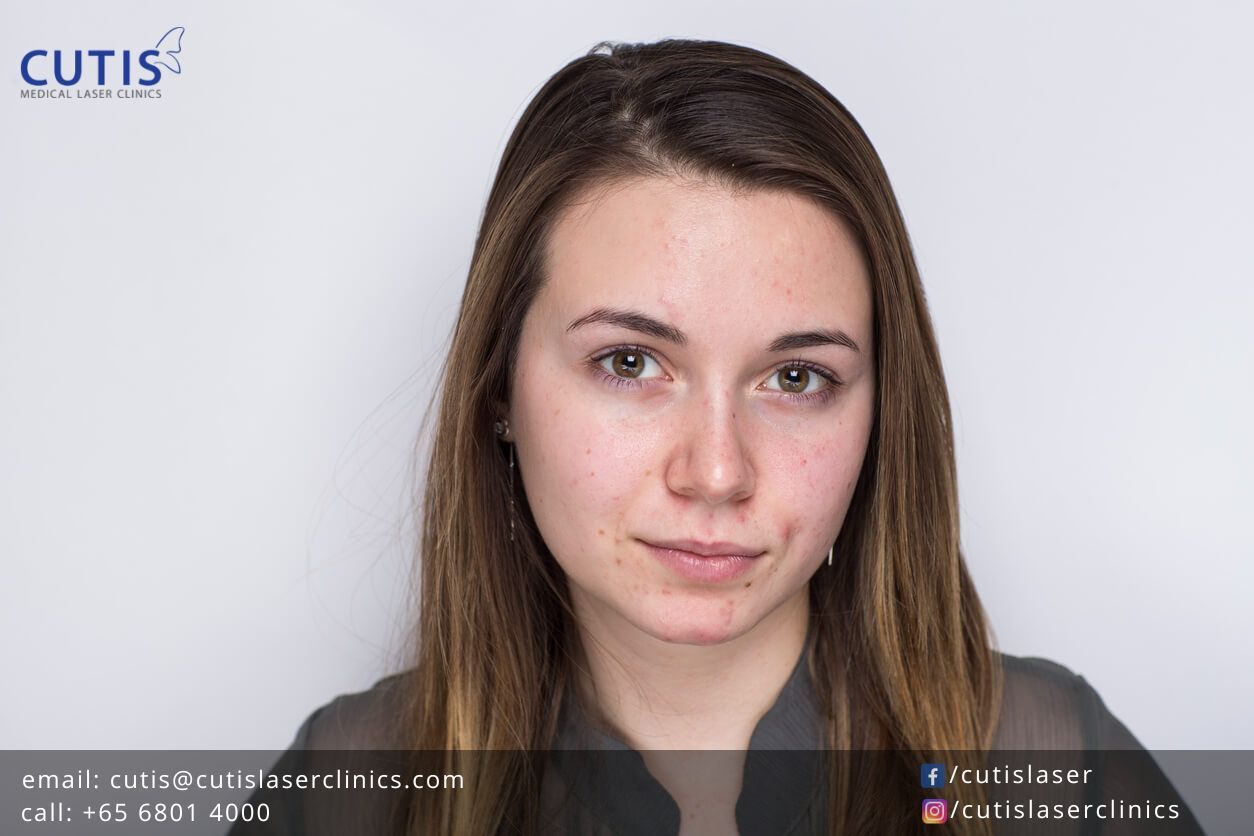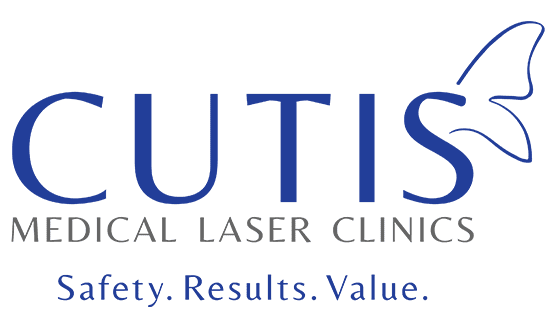Your mood and cravings aren’t the only ones that can be thrown out of the loop by your period cycle. Your skin is also subject to several changes, with the occurrence of oilier skin and breakouts being the most common concerns. In fact, studies suggest that almost half of the women experience pre-menstrual flares of their acne.

The fluctuations in your hormones trigger skin changes. The decrease and increase of estrogen, for instance, can affect the skin’s texture, fluid balance, and thickness. Hormonal changes can also increase the production of sebum in your skin. This can combine with dead skin cells, blocking the pores and causing acne to pop up.
Continue reading to find out more about these hormonal changes and what happens to your skin during the menstrual cycle. We also offer some skincare tips at each phase.
The menstrual cycle
Menstruation and ovulation aren’t the only phases of a woman’s menstrual cycle. The average length of this cycle is 28 to 29 days, but it can also be as short as 21 days and longer than 35 days. The menstrual flow typically lasts three to five days, but is still considered normal if a period only lasts for only two days or as long as seven days.
Menstrual phase (days 1 to 6) – Also referred to as the period phase, this is the time when the levels of your hormones (estrogen and progesterone) are at their lowest. This can then make the skin feel dry and more sensitive, as well as make lines and wrinkles more visible.
What to do: During this phase, don’t skimp on cleansing and moisturizing your skin. Use a gentle cleanser that is right for your skin type and choose serums or moisturizers with soothing and hydrating ingredients. Those with hyaluronic acid are a good choice.
Follicular phase (days 7 to 11) – This begins on the first day of menstruation and ends with ovulation. During this phase, your estrogen level rises, which helps with the production of collagen, elastin, and hyaluronic acid. This promotes the growth of more elastic skin cells, and stimulates cell turnover, giving your complexion a plumper, fresher, and more youthful appearance.
What to do: The follicular phase is where you should focus on exfoliating your skin gently to prevent clogged pores. You can also use a quality vitamin C serum to amp up the firming and brightening benefits of exfoliation. A potent product also hydrates and moisturizes the skin.
Ovulation phase (days 12 to 16) – Before the ovulation phase, your estrogen level rises, so you’ll notice a radiant or glowing complexion. An increase in estrogen also causes your pituitary gland to release another hormone called luteinizing hormone. This causes the ovary to release its egg. Unless it is fertilized (meets a sperm) during this phase, the egg will die.
What to do: While you may also notice great complexion during ovulation, there are also cases where your skin might become oilier, which may cause some pimples to pop up. Just make sure to cleanse your skin regularly, and steer clear of heavy products that can block or clog your pores.
Luteal phase (days 17 to 28) – At this stage, the levels of hormone progesterone increase, which helps prepare the uterine lining for pregnancy. The rise in progesterone can cause your sebum glands to produce more oil than normal, causing you to experience acne flares before your period begins.
What to do: Be sure to wash your face regularly and use a cleanser with salicylic acid if you see pimples popping up before your period. This can help reduce redness and inflammation, as well as speed up healing. You can also benefit from using a clay mask, which helps remove impurities and refine pores.
Promoting healthy skin
You can benefit from using a period tracker to learn more about your menstrual cycle and adjust your skincare. Making some adjustments to your daily habits can also help, as well as reaching out for help to find a treatment that suits you best.
It is also worth noting that not all types of acne are related to your hormones or menstrual cycle. Acne affects both males and females, as well as teens and adults. There are also a few other factors that may trigger or worsen acne, including diet, genetics, certain medications, and stress.
Here are a few things that can help.
- Always wear broad-spectrum sunscreen (SPF 30 at least) when going out. Use shades, hats, and protective clothing for extra protection.
- Avoid touching your face or squeezing and picking your pimples. Doing so can only push the pus or bacteria deeper into your skin, leading to more inflammation, dark spots, and scarring.
- Don’t over wash your face even if you have oily or greasy skin. Cleanse your face two times a day and after working out. You can use blotting papers to control shine and grease.
- Mind your diet and limit your consumption of foods that are high in sugars, fats, and simple carbohydrates. You can also consider cutting dairy if it triggers or worsens your acne.
- When using acne medication, be patient and consistent. It can take about six to eight weeks for your medication to work.
- Change or wash your pillowcases at least once a week. The same also goes for other materials or surfaces that come into contact with your skin regularly like sheets or hats.
- Seek help from a skin or aesthetic doctor. They can recommend medications or supplements that can help with your concerns. You can also consider facial and aesthetic treatments to tackle other acne-related concerns. At Cutis, we have several treatments that can help with acne and associated symptoms.
- VI Peel Purify – the chemical peel formulated for acne and related concerns. It can also soothe redness and inflammation, as well as increase cell turnover to unclog pores.
- Laser Genesis Skin Therapy – improves skin texture by treating enlarged pores, skin redness, uneven skin tone, and fine lines. It can be combined with a chemical peel to fight blemishes like acne.
- Dermapen 4 microneedling – creates miniscule needle punctures in the skin’s top layer and helps with collagen production. It can keep acne under control, as it stimulates the body’s repair and renewal process. It can also reduce pigmentation and treat acne scarring.
Learn more about the dos and don’ts of tackling your acne in our previous post.
Book a consultation
Want to learn more about our aesthetic treatments for acne and other skin concerns? Contact Cutis Medical Laser Clinics in Singapore today and schedule a consultation with our aesthetic doctor to find out which treatment is right for you.
- If you would like to be an informed patient, please contact us at +65-6801-4000 or
hello@cutislaserclinics.com. - Cutis Medical Laser Clinics, 9 Scotts Road Pacific Plaza, Scotts Medical Center #08-07, Singapore – 228210
+65-6801-4000 - hello@cutislaserclinics.com
